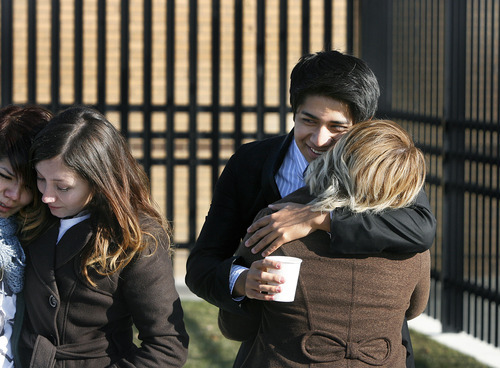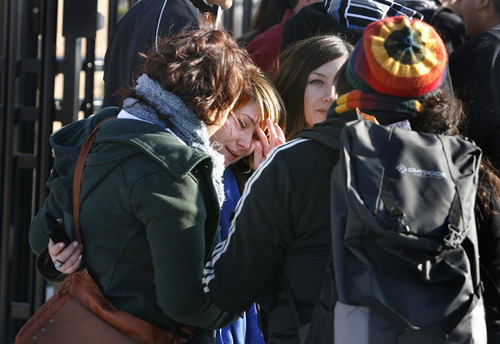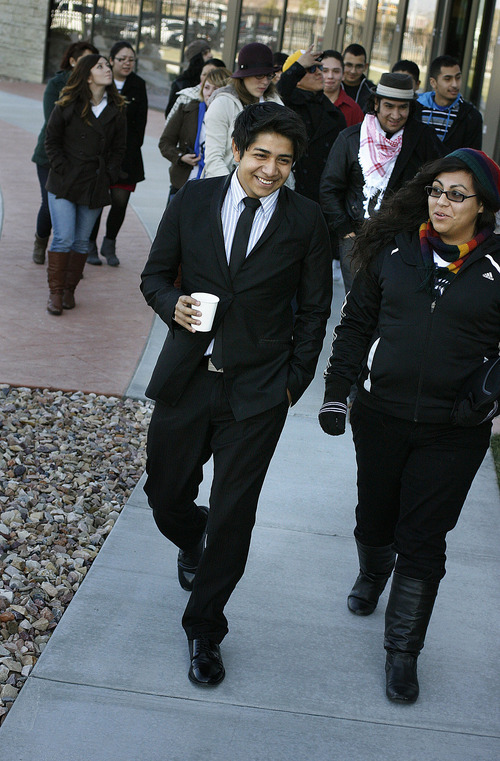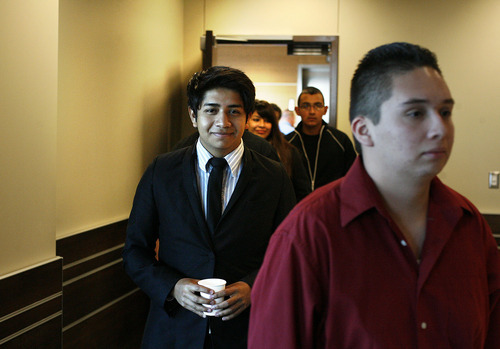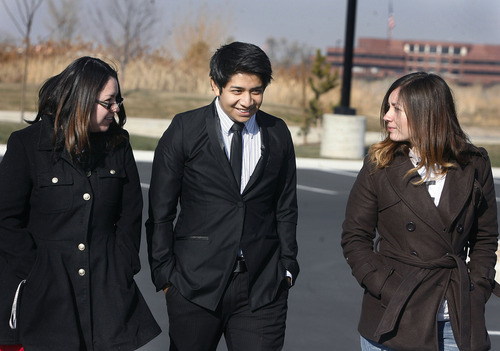This is an archived article that was published on sltrib.com in 2011, and information in the article may be outdated. It is provided only for personal research purposes and may not be reprinted.
West Valley City • He sat in the courtroom Thursday afternoon dressed in a dark suit and tie. A 20-year-old undocumented immigrant in a quiet but determined voice challenging the judge to decide his fate right then with an ultimatum that left some in the court stunned.
"I'd rather you make a decision today," David Morales said. "It's been a really hard year for me. I want to go to college. I want to do something with my life."
Immigration Judge Dustin Pead appeared to be caught off guard by the request — as did Morales' attorney, Jeffrey Young, who said he had only been advised five minutes prior to the hearing that this was the direction his client wanted to go in.
It was the latest twist in the deportation case for Morales, which began in January when he was arrested by federal immigration agents while on a bus to Louisiana where he was planning to attend Bible college.
He has been fighting deportation since then and was hoping for a decision Thursday.
But Pead calmly explained to Morales that if he rendered a decision there, he would only be left with one choice — to issue a voluntary removal order. That would essentially require Morales to leave the country and return to his native Mexico within a few months.
Pead then asked Morales if, given that information, he would like to consult with his lawyer for five minutes.
The nearly 25 people who traveled from around the country to support Morales tried to signal to him to take the other pending offer — a continuance that might result in his case being administratively closed and leaving him in a legal limbo.
After about a five minute recess, Young and Morales came back and agreed to let federal prosecutors review his case to see if he would qualify under the federal policy announced in August that would prioritize deportations among undocumented immigrants by focusing on those with criminal charges.
Pead agreed, setting a new court date of Feb. 23 — but also told the lawyers that they could make a deal prior to that date and simply let him know the terms of the deal in writing.
Department of Homeland Security officials believe that new policy could affect 300,000 cases.
However, the policy doesn't grant legal status. Instead it puts immigrants in a position where they were before their arrest — without status and without documents.
But the continuance of the case offered cold comfort to Morales and the supporters who packed the courtroom. Laura Ruiz, a close friend who was at the hearing, said the process had taken its toll on Morales.
"This whole process messes with your head," Ruiz said. "It's devastating to people. I don't think anyone should have to go through this."
After the hearing, while some of the supporters wept, Morales said he planned to keep fighting for the Dream Act, a piece of federal legislation that would allow undocumented immigrants who were brought to the country when they were children by their parents to work toward citizenship by being enrolled in college or serving in the military.
Immigration and Customs Enforcement did not immediately respond to a request for comment.
Morales, who was brought to the country when he was 9 by his parents, said he was trying to stay optimistic.
"If I can give hope to someone so they don't [commit] suicide, then it's totally worth it," he said, referencing the recent case of Joaquín Luna, an 18-year-old in Texas who killed himself because he believed he would never have a chance to become a citizen.
Twitter: @davemontero


